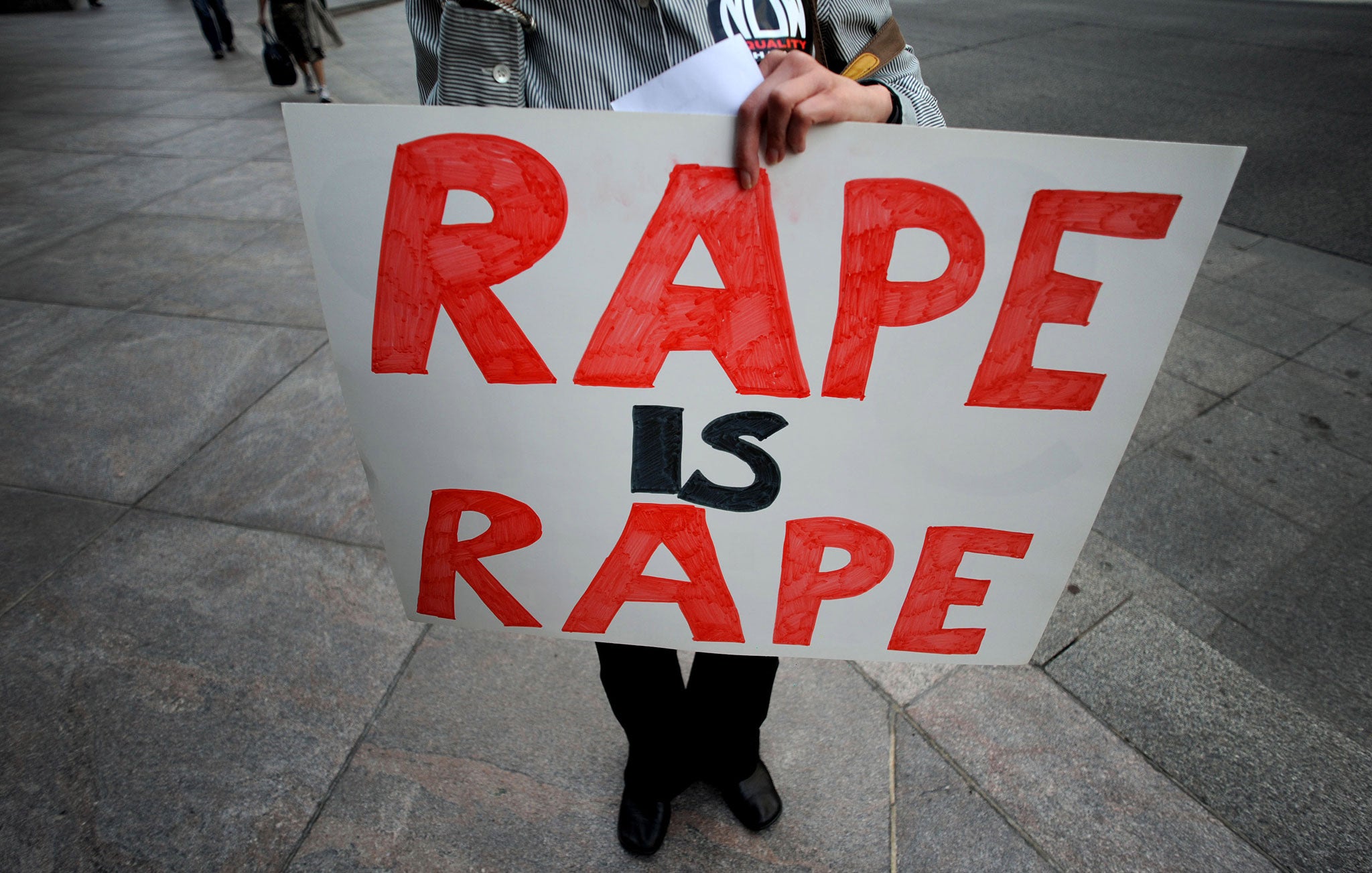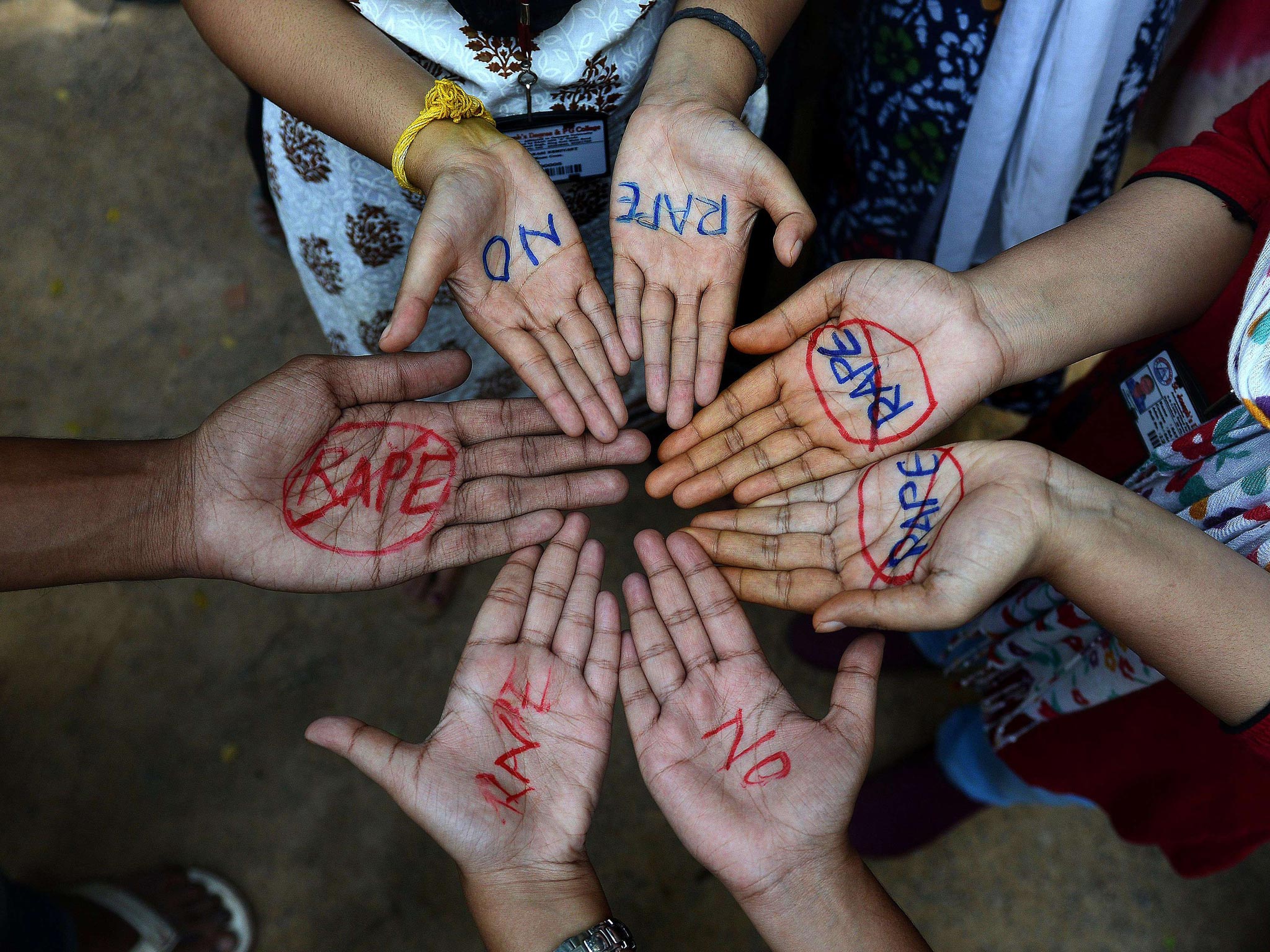The rape victim who confronted and forgave her attacker is an inspiration. But don’t expect all women to react the same way
The horror continues in the shame, self-doubt, impotent rage

Everyone, including Katja Rosenberg, agrees that her decision to forgive her rapist was inspirational, but also unusual. At around 9pm on an October evening in 2006, Ms Rosenberg was cycling home from a post-work drink when she was pulled from her bike, punched in the face, chest and stomach, and then raped. Seven years later, she met with the man who attacked her to offer forgiveness, and has now waived her right to anonymity so that her story might be shared. “Everyone is different and, obviously, there has to be a willingness from both sides – but it can be a hugely beneficial experience,” she said.
That’s one story of a rape victim’s attempt to reach a sense of resolution. Here’s another: in Madhya Pradesh – the same Indian state where a Swiss tourist was gang-raped in 2013 while camping with her husband – a woman doused her rapist in kerosene then set him on fire. According to this man, who later died of his injuries, she had lured him to visit her house to discuss an out-of-court settlement in the rape case.
Although the incident happened last September, a report about it on a website went viral this week when someone drew attention to the comments underneath. “Well he was sorta asking for it, dressing in such flammable clothing,” wrote rabbitsnwolves. “He should have relaxed and enjoyed it, after all it was just a bit of kindling cuddling,” advised lioar. Taking inspiration from the pseudo-science of former US congressman Todd Akin, electricalivia said: “If it’s a legitimate inferno, the male body has ways to try to shut that whole thing down.”
You don’t have to approve of vigilante revenge attacks, or even facetious internet humour, to see their point. Anyone familiar with the debate surrounding social attitudes to rape will also be familiar with the arguments satirised here. There are limitless variations on these rape myths, but all tend towards the same larger aim: to suggest that rape doesn’t happen or isn’t a big deal, or, if it does happen, that the victim was somehow responsible, and sort of wanted it, so perhaps it isn’t really a crime at all.
In fact, the horror of rape goes beyond the act itself, not least because of the blame that our society places on victims of this particular crime. The horror continues in the shame, self-doubt and impotent rage felt by many (but not all) people who have been raped – often for many years. It is in the oppressive fear that all women are subjected to by reminders that they cannot go out at night, travel alone, drink alcohol, jog in the park, dress as they please, talk back or express an opinion online without the threat of rape.

By choosing to meet and then forgive her attacker, Ms Rosenberg liberates herself from these additional horrors. Her attacker is no longer the shapeless evil that lurks in the night, or a spurious justification to limit her freedom. He is the pitiable 16-year-old that was, and now – thanks in large part to her forgiveness – a 23-year-old man who has the potential to do good with his life. “He was not a scary sight,” said Ms Rosenberg of their meeting. “Just a human being sitting at a table, waiting, anxious.”
Ms Rosenberg also acknowledged that – as grotesquely ironic as it may sound – she is, in some respects, lucky. Her attacker was caught, convicted and imprisoned. He is also able to take what Ms Rosenberg described as “honest and uncompromising responsibility” for his actions. This combination of circumstance is rare in rape cases.
Katja Rosenberg’s compassion and generosity are inspirational. But her story should also remind us that not all rapes are the same and not all victims react in the same way. The danger is that this woman’s forgiveness will now be seen as the model to which all victims must aspire, even in situations where it would be inappropriate.
Forgiveness can liberate, but only after the crime itself and its full impact on the victim’s life have been acknowledged. While rape myths persist and rape conviction rates remain low; while one in five women has experienced some form of sexual violence, how can we truly say we’ve reached that point?

Join our commenting forum
Join thought-provoking conversations, follow other Independent readers and see their replies